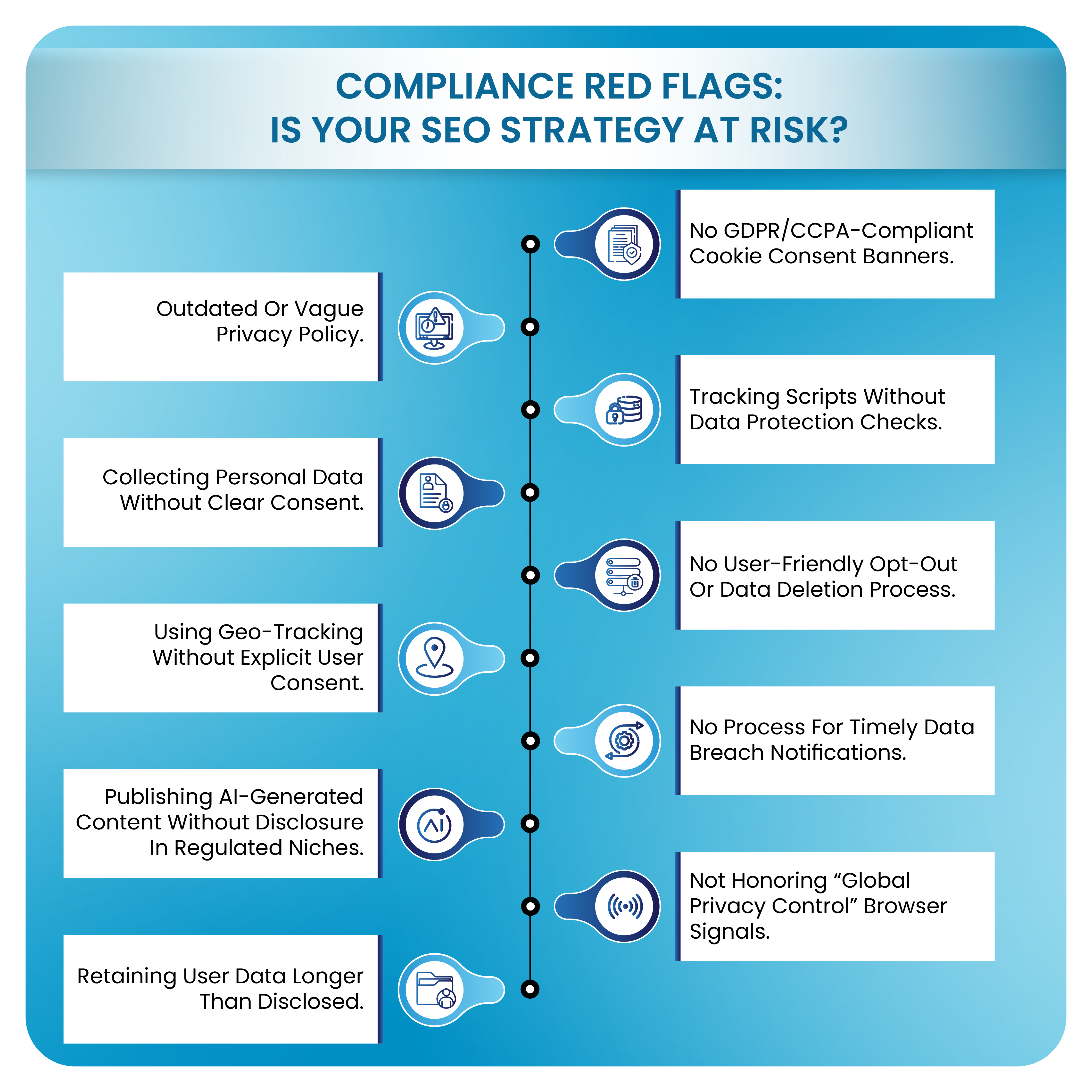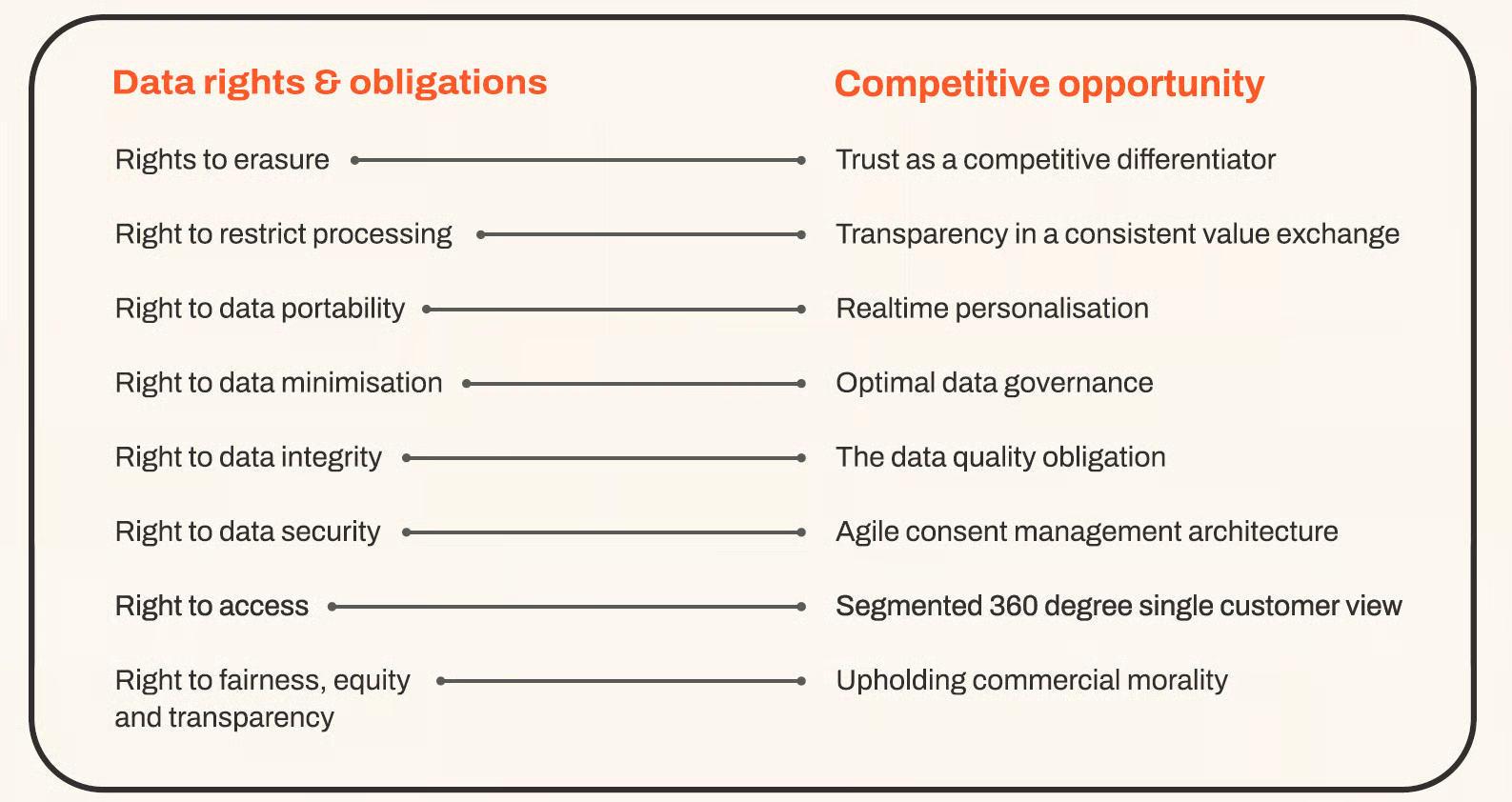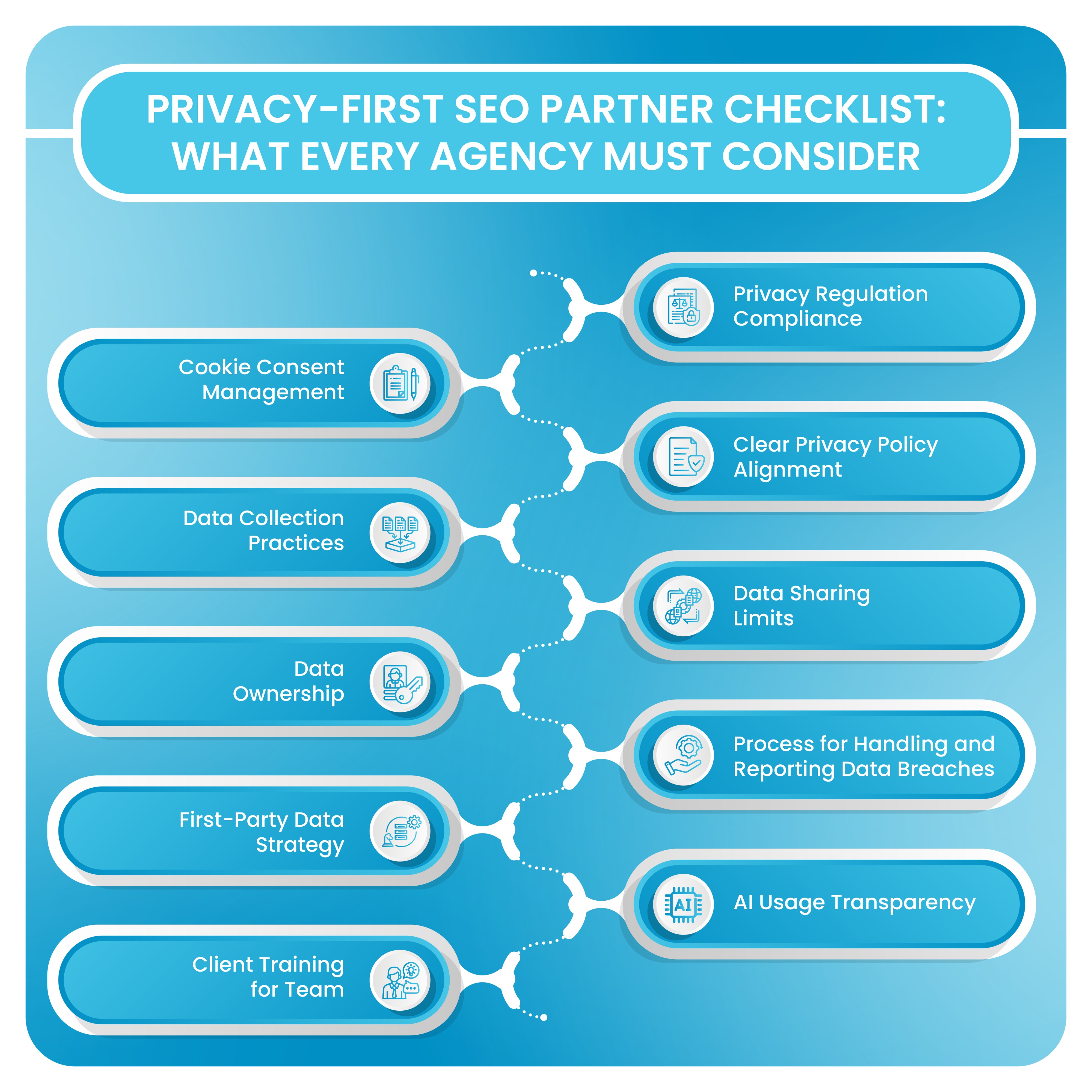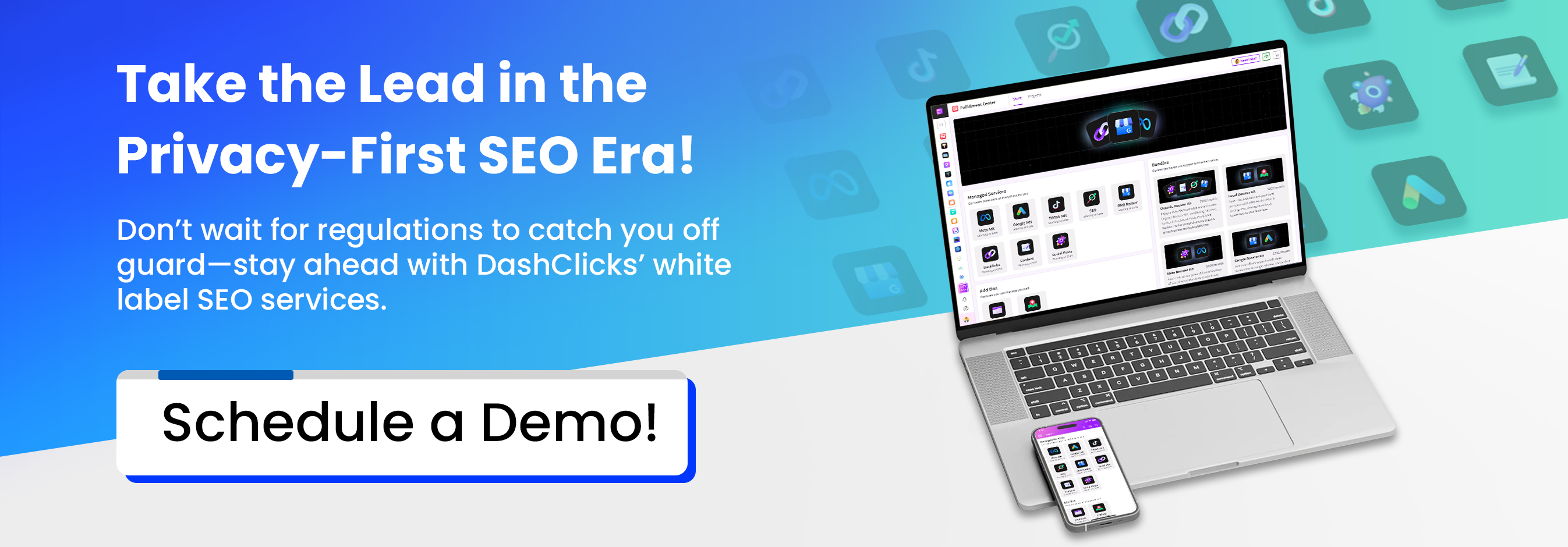Privacy regulations have changed the SEO game forever. With GDPR fines reaching into the billions and consumer trust hanging in the balance, businesses can no longer rely on old-school tracking methods that ignore user privacy. The shift toward privacy-first SEO isn't just about compliance—it's about building sustainable marketing strategies that respect user rights while delivering results.
According to recent studies, 86% of consumers care about data privacy, and 79% are willing to change their shopping habits to protect their personal information. This fundamental shift in consumer behavior has forced search engines and marketers to rethink how they collect, process, and use data for SEO purposes.
White label SEO services have emerged as crucial partners in this transition. These specialized agencies help businesses navigate complex privacy regulations while maintaining their search visibility and organic growth. Unlike traditional SEO approaches that relied heavily on third-party cookies and invasive tracking, privacy-first SEO focuses on ethical data collection, transparent user consent, and first-party data strategies.
The benefits of adopting privacy-first SEO practices extend far beyond regulatory compliance. Businesses that prioritize user privacy often see improved customer trust, better brand reputation, and more sustainable long-term growth. Companies that fail to adapt face serious consequences, including hefty fines, damaged customer relationships, and reduced search visibility.
This guide will explore how white label SEO agencies are adapting to privacy regulations, the strategies they use to deliver results ethically, and how businesses can choose the right privacy-compliant SEO partner for their needs.
Understanding Privacy-First SEO
Privacy-first SEO represents a fundamental shift in how we approach search engine optimization. Unlike traditional SEO methods that often collect user data without explicit consent, privacy-first SEO prioritizes ethical data collection, user consent, and transparency in all marketing activities.
This approach aligns perfectly with modern consumer expectations. When users visit a website, they want to know exactly what information is being collected and how it will be used. Privacy-first SEO ensures that all data collection practices are transparent, consensual, and focused on providing genuine value to users.
The core principles of privacy-first SEO include:
- Consent-Based Data Collection: Only gathering user information with explicit permission.
- Data Minimization: Collecting only the information necessary for specific business purposes.
- Transparency: Communicating data collection practices and purposes.
- User Control: Giving users the ability to manage, modify, or delete their personal information.
- Security: Implementing robust measures to protect collected data.
Outsourcing SEO to a partner that embrace these principles often outperform traditional approaches. They focus on creating genuinely valuable content that attracts organic traffic naturally, rather than relying on invasive tracking methods. This strategy builds stronger relationships with both search engines and users, leading to more sustainable results.
How Privacy Changes Are Impacting SEO Practices?
The digital marketing landscape has undergone massive changes due to privacy regulations like GDPR, CCPA, and the phasing out of third-party cookies. These changes have forced SEO professionals to completely rethink their strategies and measurement approaches.
Third-party cookie deprecation has been one of the most significant challenges. Previously, marketers could track users across multiple websites to build detailed behavioral profiles. This information helped inform keyword strategies, content creation, and conversion optimization efforts. Now, SEO professionals must adapt to privacy regulations that limit this type of cross-site tracking.
Search engines have also evolved their algorithms to prioritize user privacy. Google's recent updates emphasize first-party data, user experience signals, and transparent data practices. Websites that communicate their privacy policies and implement proper consent mechanisms often see improved search rankings.

The shift toward ethical data collection has created new opportunities for businesses willing to outsource SEO services to specialized agencies. These white label SEO providers have invested heavily in privacy-compliant tools and strategies that many in-house teams lack the resources to develop independently.
Analytics and measurement have become more complex but also more focused on meaningful metrics. Instead of tracking every user action across multiple touchpoints, privacy-first SEO emphasizes metrics like:
- Organic click-through rates from search results.
- Time spent on site and page engagement metrics.
- Direct traffic and branded search queries.
- First-party email newsletter signups and conversions.
- Customer lifetime value from organic search traffic.
This data provides valuable insights while respecting user privacy preferences and regulatory requirements.
Why White Label SEO Providers Play a Key Role?
White label SEO agencies have become essential partners for businesses navigating the privacy-first landscape.
- Specialized Privacy-First Expertise – White label SEO agencies have deep knowledge of privacy-compliant strategies, ensuring campaigns meet regulations like GDPR, CCPA, and emerging data laws while still delivering strong results.
- Cost-Efficient Scaling – Avoid the high costs of building an in-house privacy-first SEO team. Providers spread investment in training, tools, and compliance across multiple clients, making enterprise-level SEO more affordable.
- Advanced Privacy-Focused Tools – Gain access to premium analytics and SEO tools that prioritize user privacy—often worth thousands per month—without direct licensing or training costs.
- First-Party Data Optimization – Leverage owned customer data for precise targeting and improved organic performance without risking regulatory violations.
- Localized Compliance Strategies – Adapt campaigns for different regions with varying privacy laws, ensuring consistency whether targeting Europe, California, or other privacy-conscious markets.
- Consistent Results Under Restrictions – Maintain and even improve rankings despite reduced third-party tracking options, thanks to strategic, compliant SEO approaches.
- Proven Performance Impact – 73% of businesses using white label SEO report better privacy compliance, and 68% see improved organic performance compared to managing SEO in-house.
By combining compliance expertise, advanced tools, and region-specific strategies, white label SEO partner enable businesses to stay competitive in a privacy-first world without sacrificing performance. For agencies, this means they can scale faster, protect client trust, and deliver measurable results—even as regulations continue to evolve. In short, partnering with the right provider turns privacy challenges into opportunities for growth.
Adapting Your White Label SEO to Privacy-First Standards
Successfully implementing privacy-compliant SEO requires a systematic approach that covers all aspects of search optimization. White label SEO agencies that excel in this area focus on several key strategies that businesses should understand and expect from their partners.
1. Building on First-Party and Zero-Party Data
First-party data comes directly from user interactions—form submissions, newsletter sign-ups, purchase behavior—while zero-party data includes information users voluntarily share, such as survey responses or preference settings. These privacy-friendly data sources form the foundation of keyword research, content creation, and UX optimization without crossing regulatory lines.
2. Using Privacy-Friendly Analytics Tools
Traditional analytics often rely on invasive tracking that conflicts with laws like GDPR and CCPA. Privacy-compliant alternatives—such as Matomo, Plausible, or server-side Google Analytics—deliver actionable insights while safeguarding user data.
3. Practicing Transparent Reporting
High-quality white label SEO agencies provide branded reports that clearly explain what data was collected, how it was used, and the insights gained. This transparency not only keeps clients informed but also reinforces brand trust with end users.
4. Prioritizing Ongoing Compliance Education
The privacy landscape shifts quickly, with new regulations and enforcement actions emerging regularly. Leading agencies invest in continuous training and employ compliance specialists who monitor and adapt strategies as laws evolve.
5. Emphasizing Content-First Optimization
Instead of manipulative tactics or intrusive tracking, privacy-first SEO focuses on creating genuinely valuable content that meets real user intent. This approach drives sustainable rankings while respecting user boundaries.
6. Turning Compliance Into a Competitive Advantage
Privacy-first SEO is more than a legal checkbox—it’s a market differentiator. Businesses that adopt ethical, transparent, and regulation-compliant practices gain a unique trust advantage. In an age where consumers actively choose brands that respect their privacy, compliance can directly influence conversions, brand loyalty, and long-term search visibility.
Customer Rights vs Competitive Opportunity
The graphic below shows how respecting customer rights helps you achieve a competitive advantage -

Image Source: In Marketing We Trust
Partnering with a white label SEO agency that understands this shift transforms regulatory adherence into a powerful growth driver.
Metrics for Measuring Privacy-First SEO Success
Measuring SEO success in a privacy-first environment requires new approaches to analytics and reporting. Traditional metrics that relied on extensive user tracking are no longer viable or ethical, forcing SEO professionals to focus on more meaningful and privacy-compliant indicators.
- Organic traffic quality metrics provide valuable insights without compromising user privacy. These include organic click-through rates from search results, time spent on site, pages per session, and bounce rate. These metrics can be tracked using privacy-compliant analytics tools that respect user consent preferences.
- First-party engagement indicators offer direct insights into user behavior and content effectiveness. Email newsletter signup rates, content download metrics, and form completion rates show how well your content resonates with users. These metrics are particularly valuable because they represent voluntary user engagement rather than passive tracking.
- Brand awareness and search visibility metrics demonstrate the long-term impact of privacy-first SEO strategies. Branded search queries, direct traffic growth, and social media mentions indicate growing brand recognition and user trust. These metrics often correlate strongly with sustainable organic growth.
- Core Web Vitals and user experience signals have become increasingly important ranking factors. Google's emphasis on page loading speed, interactivity, and visual stability provides privacy-friendly metrics that directly impact search performance. These technical SEO metrics can be measured without invasive user tracking.
- Customer lifetime value from organic search represents the ultimate measure of SEO success. By tracking the long-term value of users acquired through organic search, businesses can demonstrate ROI while focusing on sustainable growth rather than short-term traffic spikes.
Quality white label tracking tools that prioritize privacy compliance include server-side analytics implementations, cookieless tracking solutions, and platforms that provide detailed insights while respecting user consent preferences.
Risks of Ignoring Privacy in SEO
Businesses that fail to prioritize privacy in their SEO strategies face serious consequences that extend far beyond potential regulatory fines. The risks of maintaining outdated, privacy-invasive SEO practices continue to grow as regulations become stricter and consumer awareness increases.
- Regulatory penalties represent the most immediate and quantifiable risk. GDPR fines can reach up to 4% of global annual revenue, with recent penalties including €746 million against Amazon and €225 million against WhatsApp. CCPA violations can result in fines up to $7,500 per violation, which can quickly add up for businesses with significant web traffic.
- Loss of customer trust often proves more damaging than regulatory fines in the long term. Studies show that 86% of consumers will leave a brand after a data privacy breach, and 73% will never return. This loss of trust directly impacts organic search performance, as users are less likely to click on search results from brands they don't trust.
- Search engine penalties have become increasingly common for websites that don't comply with privacy best practices. Google's algorithm updates increasingly favor websites with clear privacy policies, proper consent mechanisms, and transparent data practices. Websites that rely on invasive tracking methods often see decreased search visibility over time.
- Competitive disadvantage emerges as privacy-conscious competitors gain market share. Businesses that partner with ethical white label SEO services often outperform competitors who continue using outdated, privacy-invasive tactics. This advantage compounds over time as trust and brand reputation influence search rankings.
- Legal liability extends beyond regulatory fines to include class-action lawsuits and individual privacy claims. The legal landscape around data privacy continues to evolve, with new precedents being set regularly that expand business liability for privacy violations.
Privacy-Driven Search Trends to Watch
The future of SEO will be shaped by emerging privacy technologies and evolving user expectations. Understanding these trends helps businesses make informed decisions about their privacy-first SEO strategies and white label partnerships.
- Google's Privacy Sandbox represents a major shift in how digital advertising and analytics will function in a post-cookie world. This initiative introduces new technologies for measuring ad performance and audience targeting while protecting individual privacy. SEO professionals must understand how these changes will affect organic search measurement and optimization.
- Zero-party data collection is becoming the gold standard for ethical user insights. This involves directly asking users for information through surveys, preference centers, and interactive content. Businesses that excel at zero-party data collection often see improved SEO performance because they better understand user intent and preferences.
- Contextual targeting has emerged as a privacy-friendly alternative to behavioral tracking. Instead of following users across the web, contextual targeting focuses on the content and context of individual web pages. This approach aligns well with SEO content strategies that focus on topic authority and keyword search intent.
- Privacy-first analytics platforms continue to evolve and improve. Tools like server-side analytics, cookieless tracking solutions, and consent-aware measurement platforms provide detailed insights while respecting user privacy. White label SEO agencies that invest in these tools often deliver better results for their clients.
- Regulatory expansion shows no signs of slowing down. New privacy laws are being proposed and implemented regularly, with many following the GDPR model. Businesses that adapt SEO services to be privacy-first now will be better positioned as regulations continue to evolve.
How to Vet a Privacy-First White Label SEO Partner?
Choosing the right privacy-compliant white label SEO partner requires careful evaluation of their expertise, tools, and track record with privacy regulations. The decision significantly impacts your business's ability to navigate the complex privacy landscape while maintaining strong search performance.
- Privacy compliance expertise should be your first evaluation criterion. Ask potential partners about their experience with GDPR, CCPA, and other privacy regulations. They should demonstrate a deep understanding of consent mechanisms, data processing practices, and cross-border data transfer requirements. Quality agencies often employ dedicated compliance specialists or legal advisors.
- Tool selection and implementation reveal a lot about an agency's commitment to privacy-first practices. Ask about the analytics tools, SEO platforms, and SEO reporting systems they use. They should prioritize privacy-compliant alternatives and be able to explain how their tools protect user data while still providing actionable insights.
- Client case studies and references provide valuable insights into real-world performance. Look for examples of how the agency has helped similar businesses navigate privacy challenges while maintaining or improving SEO results. Pay attention to metrics like organic traffic growth, compliance improvements, and client retention rates.
- Reporting and transparency practices indicate how well the agency communicates about privacy-related activities. They should provide clear reports that explain data collection practices, consent rates, and privacy-compliant optimization strategies. Avoid agencies that can't clearly explain their privacy practices or seem evasive about their methods.
- Ongoing education and adaptation demonstrate long-term viability as a partner. The privacy landscape changes rapidly, so your white label SEO partner must stay current with new regulations, enforcement actions, and SEO best practices. Ask about their training programs, industry certifications, and how they monitor regulatory changes.
- Red flags to watch for include agencies that downplay privacy concerns, promise unrealistic results, rely heavily on outdated tracking methods, or can't provide clear explanations of their privacy practices. Additionally, be cautious of providers that haven't updated their strategies since major privacy regulations took effect.

How DashClicks Supports Privacy-First SEO?
DashClicks has positioned itself at the forefront of privacy-compliant SEO services, offering comprehensive solutions that help agencies navigate complex privacy regulations while delivering exceptional results for their clients. The platform combines advanced technology with privacy-first principles to create sustainable SEO strategies.
The platform integrates privacy-compliant analytics tools and reporting systems that respect user consent while providing detailed insights into SEO performance. Their approach focuses on first-party data collection, transparent consent mechanisms, and ethical optimization practices that align with modern privacy standards.
Through their white label SEO services, DashClicks helps agencies implement privacy-first strategies without requiring extensive in-house expertise. Their team of specialists stays current with evolving privacy regulations and continuously updates their methodologies to ensure ongoing compliance. This allows partner agencies to focus on client relationships while trusting that their SEO deliverables meet the highest privacy standards.
The platform's InstaReports feature generates comprehensive SEO reports that maintain transparency about data collection and usage while providing actionable insights. These reports help agencies demonstrate value to clients while building trust through clear communication about privacy practices.
DashClicks' commitment to privacy-first SEO extends to their training and support programs, which educate partner agencies about best practices, regulatory requirements, and emerging trends in privacy-compliant optimization. This ongoing education ensures that all stakeholders understand and can effectively implement privacy-first SEO strategies.
Future-Proofing Your SEO Strategy
Privacy-first SEO represents more than just regulatory compliance—it's the foundation for building sustainable, trustworthy digital marketing strategies. As privacy regulations continue to evolve and consumer awareness grows, businesses that prioritize ethical SEO practices will gain significant competitive advantages.
The shift toward privacy-first approaches requires expertise, tools, and ongoing attention that most businesses cannot develop internally. White label SEO agencies have become essential partners in this transition, offering specialized knowledge and resources that enable businesses to thrive in the privacy-conscious digital landscape.
Success in privacy-first SEO depends on choosing partners who genuinely understand and embrace privacy principles, not just those who make surface-level adjustments to comply with regulations. The agencies that invest deeply in privacy-compliant tools, ongoing education, and transparent practices will deliver the best results for their clients.
The trends shaping the future of SEO—from Google's Privacy Sandbox to the rise of zero-party data—all point toward a more privacy-conscious digital ecosystem. Businesses that adapt now will be better positioned to succeed as these changes accelerate.



.svg)

.svg)
.svg)
.svg)
.svg)
.svg)

.svg)




.svg)
.svg)
.svg)
.svg)
.svg)